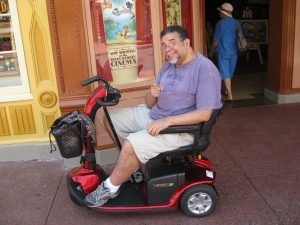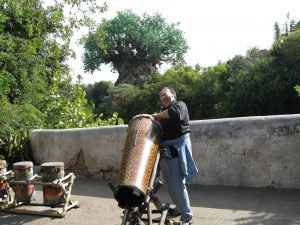For My Mom- A Birthday Tribute

Today, July 8, would be my mom’s birthday. Although, I have written quite a bit about my mom and how close we are, I like to write an annual birthday tribute to her.

When I think about the time, nearly four years ago, being in the hospital with Ben on her birthday, and wondering what was going to happen to him while missing her, I still feel overwhelmed by the fact that I have lost the people I loved the most in the world. I do feel so fortunate to have known and shown so much love in my life. And, I still feel much love. But, my life has changed dramatically in many ways, and sometimes it can feel terribly lonely.

We were always Mickey Mouse fans!
My mom is the person who introduced me to Mickey Mouse and instilled in me an eternally child-like wonder. When we were in London together, I remembered how excited my mom was to go to Paddington Station and the Paddington store in Paddington. The woman in the shop was so taken by my mom’s exuberance over the little bear and being in the shop- it was hard not to get caught up in my mom’s child-like delight- that she excitedly handed my mom a Paddington Bear doll to hold while I took her picture. So, it wasn’t all Disney, but Mommy’s first true love was Mickey.

London 1987. My mom could not wait to visit the Paddington store!
I look at our old photographs and remember the laughter. I am proud to have inherited her ability to celebrate her inner child, her youthful demeanor and her joyful spirit. Sometimes people are surprised that she passed away more than 25 years ago, because I talk about her so frequently and vividly. She is always dear to my heart and so much a part of who I am, but also, of the person I aspire to be.

My mom visited my great-aunt, Tanta Rosie, with our Standard Schnauzer, Dulcie, almost every day.
My mom was my example of the consummate caregiver, perhaps being too selfless. She was so generous and kind, always smiling as she balanced the needs of everyone around her. She tended to my grandmother, who lived with us, and also took care of my great-aunt in the nearby nursing home, and my great-uncle who insisted on living alone but needed much assistance.
I also inherited her klutziness, but, with that, I also have her ability to laugh at herself.
On her birthday, I will continue my tradition of watching The Little Mermaid, because it was one of the last films we watched together. I love to remember how much we laughed when we watched it together, particularly when we looked at my grandma, who just did not understand our amusement. I wish that I had gotten a chance to visit Walt Disney World with my mom, but she has always been present when I have been there. It always touched my heart that Ben was so aware and acknowledging of her when we were there.

I proudly say like mother, like daughter!
Happy Birthday, Mommy! I love and miss you every single day.

















